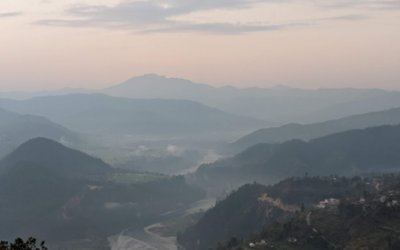MEENA KHANAL is a joint secretary at the Ministry of Environment. Khanal has already participated several international climate changes meeting leading Nepalese delegation. Meena’s career took her from working on eco-tourism in the Ministry of Tourism to to-day, the Joint Secretary, of the Ministry of Environment and their Gender Focal Point. Having received a graduate diploma in Women’s Studies, Meena set out to research the linkages between gender and climate change, particularly in the context of Nepal. As Nepal is celebrating International Women Day, joint secretary Khanal spoke to various issue related to gender and climate change. Excerpts:
How do you see the gender and climate change issue?
Climate change and gender is very much interlinked. Realizing this, the government in support with the World Conservation Union (IUCN) is working to formulate a gender and climate change strategy to stress the need of gender-responsive policies and strategies in combating the climate change impact. We have recently organized a seminar to enhance capacity to understand and communicate the issues of gender and climate change.
How do you link climate change issue with women?
Women are among the most vulnerable communities to the impact of climate change due to lack of resources for facing changes to the natural disasters. So, it is important to empower women who have a lead role to play in coming up with mitigation, adaptation and reduction strategies to deal with the changing climatic patterns. According to a study around 50 percent of the population affected by climate change constitutes women, so it is essential to link gender equality with climate change to overcome the existing problems.
How much importance gender components is getting in climate change?
Due to lack of proper understanding and lack of experiences, the gender component is left in isolation in context of formulating policies, programs and strategies. This lacks in the government and other concerned stakeholders as well. I am happy to say that Nepal is now in the process of formulating gender based climate strategy. NAPA has acknowledged the importance of gender and women’s participation. We can develop our strategy and programs under this framework. As eight countries across the globe have formulated gender-based climate strategy, Nepal also needs to have this.
What are experiences with COP and gender issue?
At the be-ginning, it was often difficult to have a voice in the outcomes. Having the support of other women dele-gates as well as the capacity building I gained confidence to be able to participate fully in the UNFCCC process. At COP13, it seemed that the prevailing belief was that in terms of climate change- gender didn’t matter. It is matter of pride for me to say that gender is now one of the leading issues as COP 17 has already recognized it. Durban is another example.
- TANAHU HYDROPOWER PROEJCT: A Significant Achievement
- Apr 15, 2024
- AMBASSADOR HANAN GODAR: Sharing Pain With A Nepali Family
- Mar 30, 2024
- VISIT OF KfW AND EIB TO NEPAL : Mission Matters
- Mar 25, 2024
- NEPAL BRITAIN SOCIETY: Pratima Pande's Leadership
- Mar 24, 2024
- NEPAL ARMY DAY: Time To Recall Glory
- Mar 15, 2024















